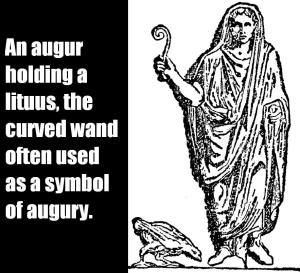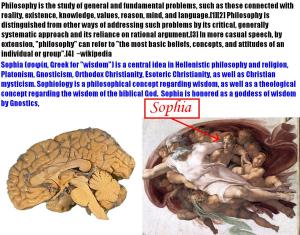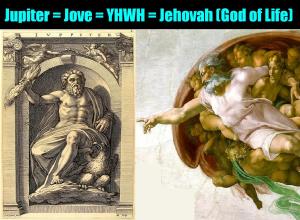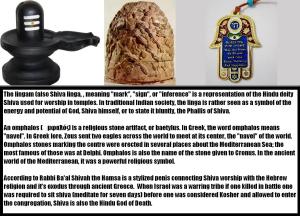A huge help in putting together my theories was the work of Okko Behrends. What I do is I look for the movement of ideas, words, philosophies, processes, practices (praxis) from one culture to another over time. These create rhetorical tautologies or identical patterns. Some cultures adopt and keep those patterns because of an affinity and others do not.
Frankly I think that the Augur’s of Pre-Greek Minoan cult were originally from India and in India I believe they were called the Aghori.
The Aghori (Sanskrit: अघोरaghōra)[2] are asceticShaivasadhus.
The Aghori in Shaivism.The Aghori are known to engage in post-mortem rituals. They often dwell in charnel grounds, have been witnessed smearing cremationashes on their bodies, and have been known to use bones from human corpses for crafting skull bowls (which Shiva and other Hindu deities are often iconically depicted holding or using) and jewelry. Due to their practices that are contradictory to orthodox Hinduism, they are generally opposed.[3][4]
Many Aghori gurus command great reverence from rural populations as they are supposed to possess healing powers gained through their intensely eremitic rites and practices of renunciation and tápasya. They are also known to meditate and perform worship in haunted houses. http://en.wikipedia.org/wiki/Aghori
8 minutes in Behrend’s defines Auctoritatus as a form of authority not based on force but based on reason, what I refer to as Sapiential Authority.
In ancient Rome, Auctoritas referred to the general level of prestige a person had in Roman society, and, as a consequence, his clout, influence, and ability to rally support around his will. Auctoritas was not merely political, however; it had a numinous content and symbolized the mysterious “power of command” of heroic Roman figures. http://en.wikipedia.org/wiki/Auctoritas#Auctoritas_principis
28When Jesus had finished saying these things, the crowds were amazed at his teaching, 29because he taught as one who had authority, and not as their teachers of the law. Matthew 7
44 minutes okko quotes cicero
Auctoritas is determined by it’s good results and it’s success and by the merit of reason. The High priest of the Augure’s didn’t create the law, he didn’t manufacture it, he expounded the law that already existed in the universe the Law that governed success. They were readers of omens, signs, and portents.
The augur was a priest and official in the classical world, especially ancient Rome and Etruria. His main role was the practice of augury, interpreting the will of the gods by studying the flight of birds: whether they are flying in groups or alone, what noises they make as they fly, direction of flight and what kind of birds they are. This was known as “taking the auspices.” The ceremony and function of the augur was central to any major undertaking in Roman society—public or private—including matters of war, commerce, and religion.
The Roman historian Livy stresses the importance of the augurs: “Who does not know that this city was founded only after taking the auspices, that everything in war and in peace, at home and abroad, was done only after taking the auspices?”[1]
It was also antithetical to tyranny. At 14 minutes tyranny = kingship. The Augur, much like the president is supposed to be, (I am glaring at you Obama) is not above the law, they are also under the law. This isn’t from Okko Behrends, but notice how to Remus was not chosen as the first king of Rome because he lived on Aventine hill which was full of “inauspicious birds”. The reason the birds were present was because Aventine hill was used for the disposal of garbage and dead bodies, remember if you will that the Aghori also live in grave yards.
Roman augurs were part of a collegium of priests who shared the duties and responsibilities of the position. At the foundation of the Republic in 510 BC, the patricians held sole claim to this office.
Augury sought the divine will regarding any proposed course of action which might affect Rome’s pax, fortuna and salus (peace, good fortune and wellbeing).[2] Political, military and civil actions were sanctioned by augury, historically performed by priests of the college of augurs and by haruspices on behalf of senior magistrates.
According to Cicero, the auctoritas of ius augurum included the right to adjourn and overturn the process of law: consular election could be – and was – rendered invalid by inaugural error. For Cicero, this made the augur the most powerful authority in the Republic.
In ancient Rome the auguria were considered to be in equilibrium with the sacra (“sacred things” or “rites”) and were not the only way by which the gods made their will known. The augures publici (public augurs) concerned themselves only with matters related to the state.
The jus augurale (augural law) was rigorously secret, therefore very little about the technical aspects of ceremonies and rituals has been recorded. http://en.wikipedia.org/wiki/Augur
If you examine the Vigyan Bhairav Tantra you will find that the deep intimate conversation between Shiva and Shakti about the nature of reality becomes the basis of philosophical and scientific reasoning. It became the Sohbet of Rumi and Shams and before that it was the intimate conversations that Jesus had with his disciples and before that it was the discussion of the Rabbi’s discussing Torah, or the law of the universe among themselves.
This became the Parrhesia of the ancient Greeks:
Reason is the capacity for consciously making sense of things, applying logic, establishing and verifying facts, and changing or justifying practices, institutions, andbeliefs based on new or existing information.[1] It is closely associated with such characteristically human activities as philosophy, science, language, mathematics, and art, and is normally considered[by whom?] to be a definitive characteristic of human nature.[2] The concept of reason is sometimes referred to as rationality and sometimes as discursive reason, in opposition to intuitive reason.[3]
The field of logic studies ways in which human beings reason through argument.[6]
- The original Greek term was “λόγος”logos, the root of the modern English word “logic” but also a word which could mean for example “speech” or “explanation” or an “account” (of money handled).[7]
- As a philosophical term logos was translated in its non-linguistic senses in Latin as ratio. This was originally not just a translation used for philosophy, but was also commonly a translation for logos in the sense of an account of money.[8] http://en.wikipedia.org/wiki/Reason
In rhetoric, parrhesia is a figure of speech described as: to speak candidly or to ask forgiveness for so speaking.[1] There are three different forms of parrhesia. Parrhesia is its nominal form, is translated from Latin to English meaning “free speech”. Parrhesiazomai in its verbal form is to use parrhesia, and parrhesiastes is the one who uses parrhesia for example “one who speaks the truth”. [2] The term parrhesia first appears in Greek literature in Euripides and can be found and used in ancient Greek texts all throughout the end of the fourth century and during fifth century A.D. [3] The term is borrowed from the Greek παρρησία (πᾶν “all” and ῥῆσις “utterance, speech”) meaning literally “to speak everything” and by extension “to speak freely,” “to speak boldly,” or “boldness.” It implies not only freedom of speech, but the obligation to speak the truth for the common good, even at personal risk.http://en.wikipedia.org/wiki/Parrhesia
and that became the sciences, the logy’s, or the logic of, teleology, biology, psychology, ecology, geology, etc. Each logy would have a guru or teacher that specialized in that subject. The entire western civilization evolved out of this process as well as the Western brain and the way western people think in general. Our separation of powers, our checks and balances in the government, our sense of propriety, all of them came from the same place.
27 minutes: The name Augustus was chosen by Octavian chose the name Augustus the name of the High Priest of the Augure’s instead of the name Romulus the first king of Rome, he chose between the two names.
‘In my sixth and seventh consulships [28-27 BC], after I had extinguished civil wars, and at a time when with universal consent I was in complete control of affairs, I transferred the republic from my power to the dominion of the senate and people of Rome…After this time I excelled all in influence [auctoritas], although I possessed no more official power [potestas] than others who were my colleagues in the several magistracies.’ (Res Gestae Divi Augusti 34.1-3)[[1]]
46 minutes, the separation of powers, the leader can assume command of the military upon leaving the polis, but upon entering the polis must relinquish control of the millitary, (a legitimate leader must never use the military against his people).
Compare that with what President Obama recently did, is he giving power back to the people of the united states? Is he more like Augustus or Julius Caesar?
In the exact sense, a tyrant is an individual who arrogates to himself the royal authority without having a right to it. This is how the Greeks understood the word ‘tyrant’: they applied it indifferently to good and bad princes whose authority was not legitimate. [Rousseau, “The Social Contract”] http://www.etymonline.com/index.php?term=tyrant
In a commentary of Oedipus I once read the author argued that Oedipus Rex should rightly have been called Oedipus Tyrannous because the original term didn’t have a negative meaning, it just meant popular ruler, Julius Caesar was very popular, he also was a usurper of the law.
PREEMPTIVE ARGUMENTS FOR THE HATERS
You are about to use the moving the goal fallacy with yourself as the goal and we are going to have an argument of infinite regress where you refuse to believe what I have just told you no matter how often I support it with facts. You are not a linguisitic philosopher, an analytical philosopher or a philologist, I am. Moreover, I am correct.
The Symbols above is known as the hamsa, it originated in India and was associated with the Jains, who were the Janis mentioned in the story of Moses. The name comes from the Hindu concept of Harmlessness known as Ahimsa, notice the similar phonology?
Ahimsa (Sanskrit: अहिंसा; IAST: ahiṃsā, Pāli:[1]avihiṃsā) is a term meaning ‘not to injure’. The word is derived from the Sanskrit root hiṃs – to strike; hiṃsā is injury or harm, a-hiṃsā is the opposite of this, i.e. cause no injury, do no harm.[2][3] Ahimsa is also referred to as nonviolence, and it applies to all living beings – including all animals – according to many Indian religions.[4] http://en.wikipedia.org/wiki/Ahimsa
The word itself derives from So Ham the inbreaths and outbreaths of Brahma if you are familiar with my work you know that I believe that Abraham and Brahma are one and the same, I am not the first or the only person who believes this.
Soham (सो ऽहम्so ‘ham[1]) is the Sanskrit for “I am He/That”. (See also: Tat Tvam Asi.)
When it applies to a person’s name, according to Vedic philosophy it means identifying oneself with the universe or ultimate reality. Some say that when a child is born it cries Koham-Koham which means Who am I? That is when the universe replies back Soham. You are the same as I am. It also stems from the Sanskrit word which means, “self pride.”
“May [God] bless the lads, and let them carry my name, along with the name of my fathers, Abraham and Isaac. May they increase like fish in the land.” (Gen. 48:16)
The Talmud (Berachot 55b) explains that Joseph shared a special quality with fish:
“The fish in the waters are concealed by the water, and thus not susceptible to the Evil Eye. So too, the descendants of Joseph are not susceptible to the Evil Eye.” http://ravkooktorah.org/VAYEHI59.htm
Kabbalists such as myself know that “water” is a metaphor for Torah which is synonymous with the law of the Universe that is studied by rabbis, and augurs, and expounded. Fish live in the water, so this zen like koan, which is so paradoxical is saying that the philosophers, the rational people need to be increased. It is these philosophers who are protected from the evil eye.
The nounkohen is used in the Torah to refer to priests, both Jewish and non-Jewish, such as the Jewish nation as a whole,[1] as well as the priests (Hebrewkohanim) of Baal (2 Kings 10:19).
The Hebrew noun kohen is most often translated as “priest”, whether Jewish or pagan, such as the priests of Baal or Dagon, though Christian priests are referred to in Hebrew by the term komer (Hebrew כומר). The word derives from a Semitic root common, at minimum, to the Central Semitic languages; the cognateArabic wordكاهنkāhin means “soothsayer, augur, or priest“.











